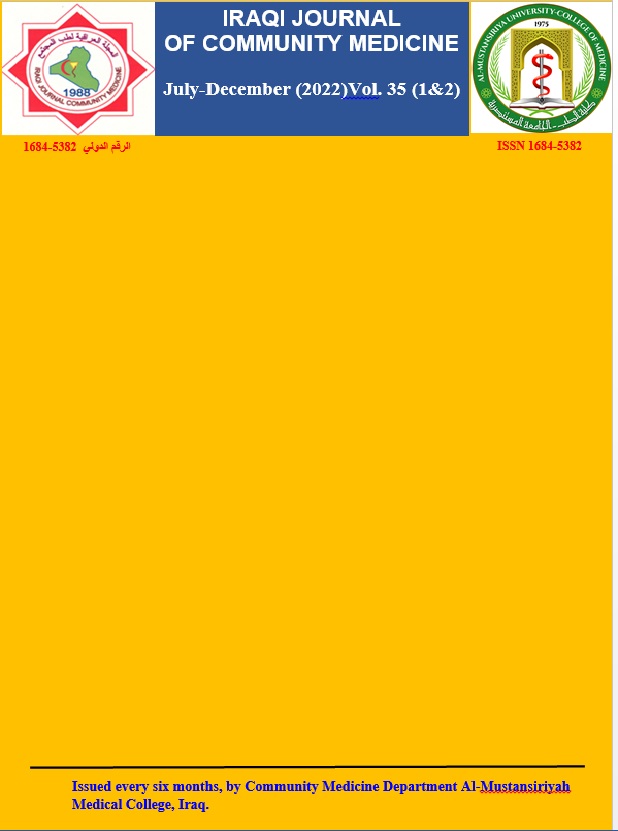Abstract
Background: Hepatitis B vaccine has been introduced for more than 3 decades. The duration and protective efficacy in early infancy seems to be multifactorial. Age, vaccination schedule, dosages, vaccine type and population characteristics may potentially influencing the protection rate. Objectives: Identification of characteristics of low responders who administered full doses of HB vaccine, and trying to figure out the reasons behind their failure to develop protective levels of anti-HBs antibodies. Vaccinees and methods:This cross sectional study was conducted in Baquba City, the center of Diyala province for the period 20 July/ 2016 to 20 March /2017. A total of 452 children were enrolled, 247 (54.6%) were males and 205 (45.4%) were females, with an age range of 1- 14 years. All were previously immunized with genetically engineered HBV vaccine (Euvax B, Korea), with a dose of 10 micrograms of HBsAg/ 0.5 milliliter (children vial) intramuscularly according to Iraqi vaccination schedual. Venous blood samples were collected aseptically; sera were separated and subjected for the detection of HBsAg, anti-HBs antibody titer, HBe Ag and total antibody and anti-HBc total antibody using Enzyme Linked Immunosorbant assays (ACON, Foresight-USA). A pre-constructed questionnaire form was prepared including information of socio-demographic, health, and vaccination status. Statistical analysis was done using the Statistical Package for Social Science (SPSS), Version 23. P values < 0.05 were considered significant. Results:The study found that a total of 110 (24.34%) vaccinees were failed to achieve the protective levels of anti-HBs Ab (10 mIU/ml) as recommended by the WHO. The mean ± SD of age was 64-76 ± 38.4 months with an age range of 13168 months. The mean duration of time since last vaccine dose was 41.2 ± 41.4 months (range 1-171 months). They were 53(48.2%) females and 57(51.8%) males. The mean ± SD of the anti-HBs Ab titer was 6.31 ± 1.9 mIU/ml (range 3.0- 9.92 mIU/ml). The results also showed that the anti-HBs Ab titers are insignificantly elevated as the number of vaccine doses increased (3.419, P=0.507). On the other hand, these Anti-HBs antibody titers are insignificantly declining after more than fourth year since last vaccine dose (3.841 P=0.168). Furthermore, nonregular vaccination schedule elicit insignificantly higher anti-HBs Ab titers (2.155, P=0.190). Finally, the anti-HBs Ab titers are marginally affected by other scio-demographic factors. Conclusion: The anti-HBs antibody titers in low responder HBV vaccinees are non-remarkably affected by vaccine or vaccinees related factors, recommending that those low responders should receive a booster dose of HBV vaccine.
Keywords
Anti-HBs antibody
HB vaccine
vaccine low responder
